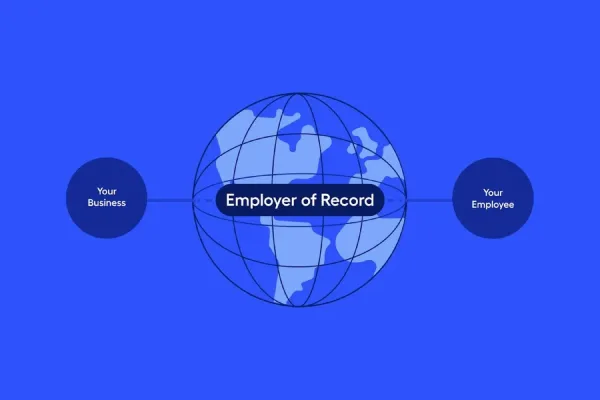Want to expand business into the Kingdom?
Well! Doing business in Saudi Arabia is not just about growth—it’s about getting the details right. From invoice validation to tax registration, every step demands precision. Miss one and be ready to face penalties, delays..or worse—lost credibility.
But what exactly do you need to stay compliant?
- How do you check if a VAT number is legit in Saudi Arabia?
- Where do you find or verify your VAT certificate?
- And what’s this TIN number everyone keeps mentioning?
In this guide, we will decode it all: VAT lookup, certificate verification, TIN basics, and the latest updates from ZATCA. This write-up is packed with deep insights, and practical steps.
VAT in Saudi Arabia: The Basics You Must Know
Saudi Arabia introduced VAT (Value Added Tax) on January 1, 2018, at a 15% rate.
It’s managed by the country’s tax authority—ZATCA (Zakat, Tax and Customs Authority).
This 15% tax is added to most things people buy or sell, including:
- Everyday items like groceries, electronics, and clothing
- Services you use (from AC repairs to business consulting)
- Even online subscriptions or e-courses from abroad aren’t spared
Who Needs to Register for VAT?
- If your business makes over SAR 375,000 a year → VAT registration is mandatory
- If you make between SAR 187,500 and SAR 375,000 → You can register voluntarily
- If you’re a foreign business selling digital products or services to people in Saudi Arabia → You must register, no matter how much you earn
What Is E‑Invoicing (Fatoora)?
From late 2021, businesses in Saudi Arabia must use a system called Fatoora. This means:
- All invoices must be electronic—not handwritten or manually made
- Invoices are sent to ZATCA instantly to be checked and approved
- This helps stop fake billing and tax cheating
Why Do VAT Lookups Matter?
To avoid fraud, ZATCA lets anyone check if a business is legally registered for VAT.
By doing a VAT lookup in Saudi Arabia, or using a VAT number check in KSA, you can:
- Make sure your supplier is real
- Avoid getting fake or illegal invoices
- Stay safe during tax audits
Decoding the Saudi VAT ID: Get Complete Anatomy of VAT Number
Registered businesses in Saudi Arabia are assigned a unique 15-digit VAT number by ZATCA. This number isn’t just a bunch of digits. It’s carefully structured to help identify, verify, and track businesses across official systems.
Here’s how the number is built:
| Section | Position | What It Means | Example |
| GCC Country Code | 1st digit | Always starts with 3, representing Saudi Arabia in the GCC | 3 |
| Serial Number | 2nd to 9th digit | A unique 8-digit code assigned to each taxpayer | 12345678 |
| Check Digit | 10th digit | A control number used for internal validation (error checking) | 9 |
| Branch Code | 11th to 13th | Identifies the specific branch of the business (if applicable) | 001 |
| Tax Type Code | 14th & 15th | Usually 03 for VAT; other codes may apply for excise etc. | 03 |
Full Example:
Let’s say your VAT number is: 3 12345678 9 001 03
- It starts with 3 → You’re registered in Saudi Arabia
- The middle 12345678 is your unique business ID
- 9 confirms the number is correctly structured
- 001 tells which branch of your business it is
- 03 means it’s registered for VAT (Value Added Tax)
Why Is This Structure Important?
- One number = one business or branch. No repeats.
- Built for fast verification by ZATCA and users alike.
- Smart details (like check digits) reduce fraud risk.
- Easy to spot fakes during a VAT lookup in KSA.
Quick Notes:
- A business can have multiple VAT numbers if it has multiple branches
- If you see a VAT number not starting with 3 or less/more than 15 digits, it’s likely invalid
- Only ZATCA can issue a valid VAT number—it cannot be self-generated or modified
VAT Registration & Certificate: Step-by-Step
A. Who Must Register?
Mandatory: If your business makes more than SAR 375,000 a year from taxable sales, you must register for VAT. This applies to both local companies and foreign digital sellers.
Voluntary: If you make between SAR 187,500 and SAR 375,000 a year, you can register if you want. It’s optional but may benefit you.
Zero-rated supplies: Some items are taxed at 0%. If you only sell those, you don’t have to register. But you can still register to get back the VAT you pay on your expenses.
B. How to Register
Step 1: Prepare your Documents
You will need following documents for registration process:-
- Commercial Registration (CR) certificate
- National ID/Iqama or passport
- Bank account details (IBAN)
- Business address and contact info
- Estimated taxable supplies value
Step 2: Create your ZATCA account
For this, you need to visit the official website of ZATCA. Log in using your Muqeem or Nafath credentials.
Step 3: Fill out the VAT registration form
Once you logged in, go to the VAT registration section. Enter your business and financial details. Upload the required documents. Submit the form online.
Step 4: Processing Period
ZATCA will review your application. This usually takes 10 to 14 business days. Sometimes it may take a little longer.
Step 5: Get your VAT certificate
Once approved, you will receive an official VAT certificate. This includes:
- Your business name
- CR number
- VAT number
- TIN (Tax Identification Number)
- Registration date
- VAT status
Save this certificate. You will need it for invoices, audits, and tax records.
C. Deregistration Process
- Optional for businesses below SAR 187,500 or those ceasing taxable activities
- Must apply within specified timelines and meet ZATCA’s conditions
Performing a VAT Number Check (VAT Lookup KSA)
Before contracting or drafting invoices, conducting a VAT lookup in Saudi Arabia is best practice.
A. Why Verify?
- Prevent fraud by confirming supplier legitimacy
- Ensure e‑invoices carry accurate VAT data—non-compliance is penalized
- Support tax audits and compliance documentation
B. Step-by-Step Guide
- Access ZATCA portal → E‑Services → General Services → Verification Services
- Click VAT Taxable Person Lookup, then Service Login
- Enter your choice: VAT number, certificate number, or CR number
- Type in the full 15-digit VAT number; add captcha and submit
- You’ll see:
- Entity name
- VAT registration status (active/inactive)
- VAT registration number and date
- Entity name
C. Additional Tips
- Bulk verification available through third-party services.
- ZATCA’s system is public-facing; no login is needed for verification—only a valid VAT number and captcha are required
VAT Certificate Saudi Arabia: Your Compliance Proof
Your VAT certificate Saudi Arabia is not just a formality—it’s the backbone of your VAT compliance framework.
What It Contains:
- Registered business name & CR number
- VAT registration number (same as TIN for VAT)
- Effective date of registration
- Current legal status (Active/Cancelled)
Why It’s Essential:
- Required for issuing compliant e‑invoices with Fatoora
- Must be presented during tax audits or when finalizing business deals
- Acts as a trusted legal document for tenders, cross-border trade, and corporate record-keeping
Decoding TIN Number Saudi Arabia
-
What is TIN?
TIN means Tax Identification Number. It is a special number given by ZATCA to every person or business that pays tax in Saudi Arabia. This number is used for all types of taxes, like VAT, Zakat, excise tax, and more.
- Companies get a 10-digit TIN. It is part of their VAT number but without the branch code and tax type at the end.
- Individuals get a 12-digit TIN. It is based on their National ID or Iqama. The first two digits show the region, and the next ten digits are unique to the person.
This number helps ZATCA keep track of who is registered for tax and makes sure everything is recorded correctly.
Why TIN Matters
- Used as the main ID for all types of taxes and customs work
- Needed when making invoices, tax returns, or customs papers
- Crucial for compliance, audits, and regulatory communication
How to Get Your TIN in Saudi Arabia (Step-by-Step)
Step 1: Register your business
Visit the Ministry of Commerce and get your Commercial Registration (CR). If you don’t know about CR, you can refer to this article – What is a commercial registration? This is needed before you apply for any tax number.
Step 2: Create/log in to your ZATCA account
Visit the ZATCA portal. Log in using your Muqeem or Nafath credentials.
Step 3: Fill out the tax registration form
Once you’re inside the portal:
- Enter your CR number
- Add your bank account (IBAN)
- Provide your address and contact details
- Upload your ID, Iqama, or passport
- Enter your business information
Step 4: Wait for approval
ZATCA will review your application. The TIN is usually issued in 48 to 72 hours. You can find it in your ZATCA dashboard or download the certificate.
Step 5 Manual application
Alternate route is visiting a ZATCA office with physical documentation.
VAT vs. TIN: Two Numbers, Distinct Roles
| Feature | VAT Number (VAT ID) | TIN (Tax ID) |
| Purpose | Exclusive to VAT operations | Across all tax types |
| Format | 15 digits (3‑8‑1‑3‑2 config) | 10 digits (entity) / 12 digits (individual) |
| Who Needs It | Businesses above threshold | All taxpayers/entities |
| Verification Tool | VAT Taxable Person Lookup | Tax Number Verification |
| Document Use | VAT certificate, e‑invoices | Tax filings, customs, invoices |
Updated Developments in Saudi Tax (2025)
Saudi Arabia’s VAT landscape saw major updates on April 18, 2025, with some reforms set for January 1, 2026.
| Update Area | What’s New | Effective Date / Notes |
| VAT Group Rules | New rules on residency and control. Existing VAT groups have 180 days to comply. | Effective April 18, 2025 |
| Transfer of Going Concern | ZATCA defines how VAT applies when a full business is sold or transferred. | Must notify ZATCA within 1 month of transfer |
| Special Zones | VAT is 0% for goods under customs suspension in special economic zones. | Clarifies supply chain and movement between zones |
| Marketplace Rules | From Jan 1, 2026, online marketplaces may be treated as suppliers. | Contracts and invoicing must reflect this clearly |
| Input VAT Guidance | Updated rules on VAT recovery for insurance, catering, vehicles, etc. | Helps businesses manage blocked or allowed input VAT |
| Compliance Windows | 20-day correction period for voluntary disclosures, extended audits, and penalty waivers until June 30, 2025 | Applies to VAT errors and audits |
E‑Invoicing (Fatoora) & Real-Time Tax Integration
Saudi Arabia’s e‑invoicing system (Fatoora) is fully operational:
- Phase 1 (Generation) – Started 4 December 2021
- Phase 2 (Integration) – Mandatory as of 1 January 2023
Highlights:
- All B2B and B2C invoices are generated in XML and transmitted to ZATCA in real time
- Invoices must include VAT number, TIN, cryptographic stamp, and QR code
- Buyers can scan invoices to verify clearance and legitimacy
- Simplified invoices are allowed with certain transaction limits (under SAR 1,000 for B2B; no limit for B2C)
This system enhances efficiency and enforces tax compliance by integrating VAT processes with digital invoicing.
Best Practices & Compliance Checklist
- Check VAT numbers before working with any supplier.
- Save your VAT certificate and TIN in a safe place for future use.
- Use the Fatoora system to send invoices automatically to ZATCA.
- Stay updated on rule changes, especially for VAT groups and online sellers.
- Keep your e-invoicing records clean—like XML files, QR codes, and stamps.
- Cancel your VAT registration if your business drops below the limit.
- Foreign businesses: Register early, get a local agent, and follow reverse-charge rules
Final Say
Ready to make VAT compliance one less thing to worry about? Bookmark this guide, follow the steps, and let your business grow—confident, compliant, and audit-ready. And remember—you’re not alone. You can consult with our experts anytime.







